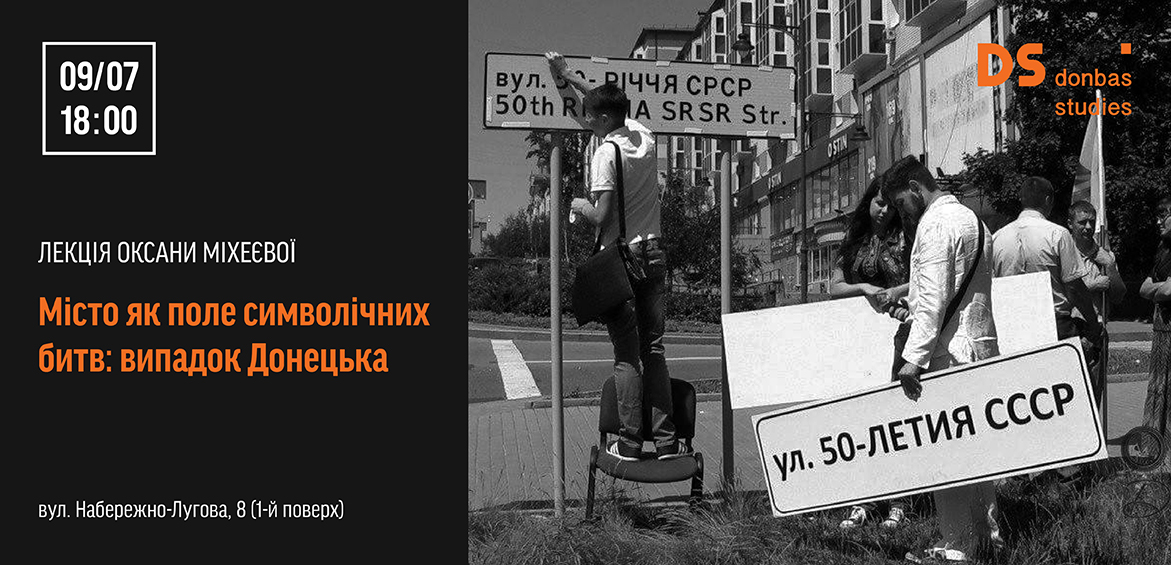Lecture City as a Symbolic Battlefield: The Case of Donetsk

On Sunday, July 9, 2017, at 6 PM, as part of the Donbas Studies project by IZOLYATSIA, the IZONE Creative Community will host a lecture City as a Symbolic Battlefield: The Case of Donetsk by sociologist Oksana Mikheieva.
The history of Donetsk’s commemorative culture puts forth the role of monuments and commemorative objects in the symbolic representation of the dominating ideology. The authorities use monuments to mark the social space of the city, assigning a certain worldview and modes of understanding reality through activities surrounding the monuments. The almost centennial history of Donetsk has seen the city gradually implementing and anchoring the Soviet ideology that would eventually become a norm of everyday life for average city dwellers by early 1960s. All representations of the marginalised social groups (ethnic, local, etc.) were completely expelled from the city space and reduced to individual memories of particular people. This way, the Soviet standardisation and unification of monuments as spatial markers determined fixed boundaries of the unified ideological and state space.
In times of Perestroika and independence, monuments start reflecting the discussions about the past. City space gradually becomes polysemantic, although visibly more so on the local level. However, the process of history reinterpretation is obviously not over: monuments continue to be mostly markers of power, even though they represent a materialised memory of the groups repressed and marginalised during the Soviet period.
Today, through the intensive commemorative policies of the occupying regimes, the eastern territories of Ukraine are being symbolically disconnected from the Ukrainian and European discourse while being actively inscribed into the ideological construct known as the “Russian world”. This new experimental ideological construct intrumentalises the Soviet memory on these territories, using its main clichés to justify the geopolitical choice of the region’s inhabitants. The aforementioned experience proves that work with Soviet heritage in Ukraine, including monuments and toponyms, is a matter of national security just as much as it is an historical issue.
Oksana Mikheieva holds a PhD in history. She is a professor at the department of sociology of the Ukrainian Catholic University.
The lecture will be held at the first floor of the IZONE Creative Community at 8 Naberezhno-Luhova Street.
Free entrance.